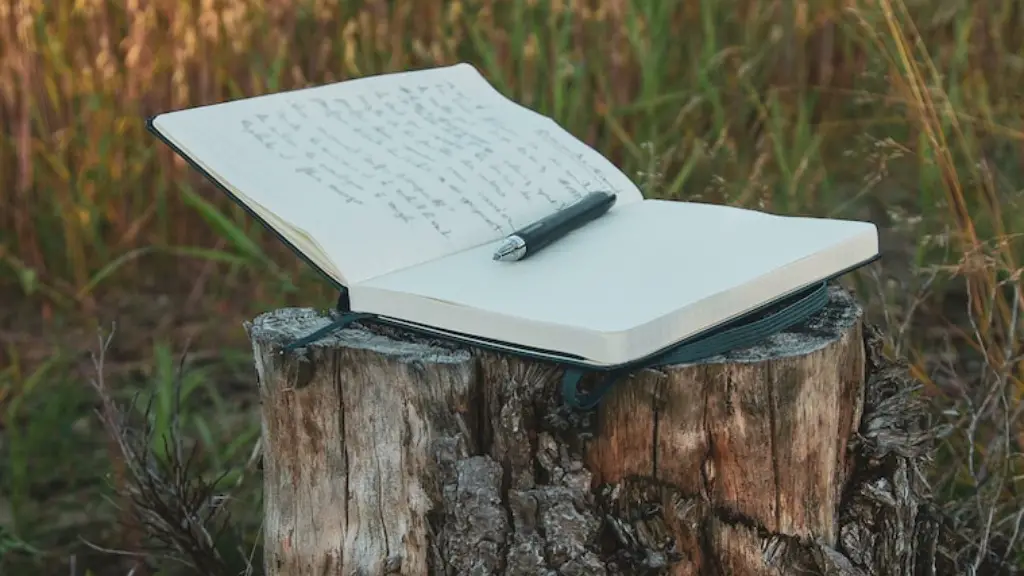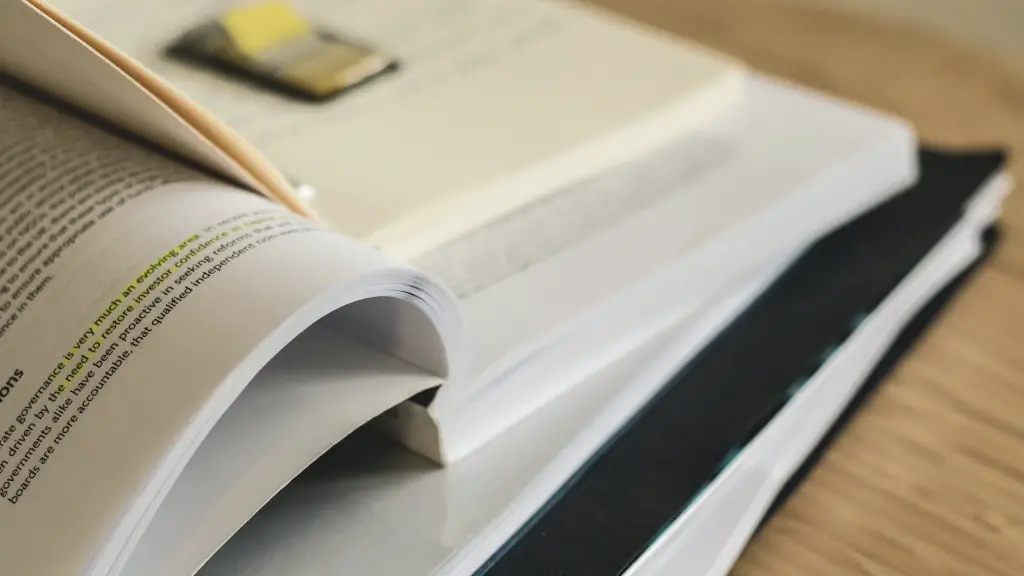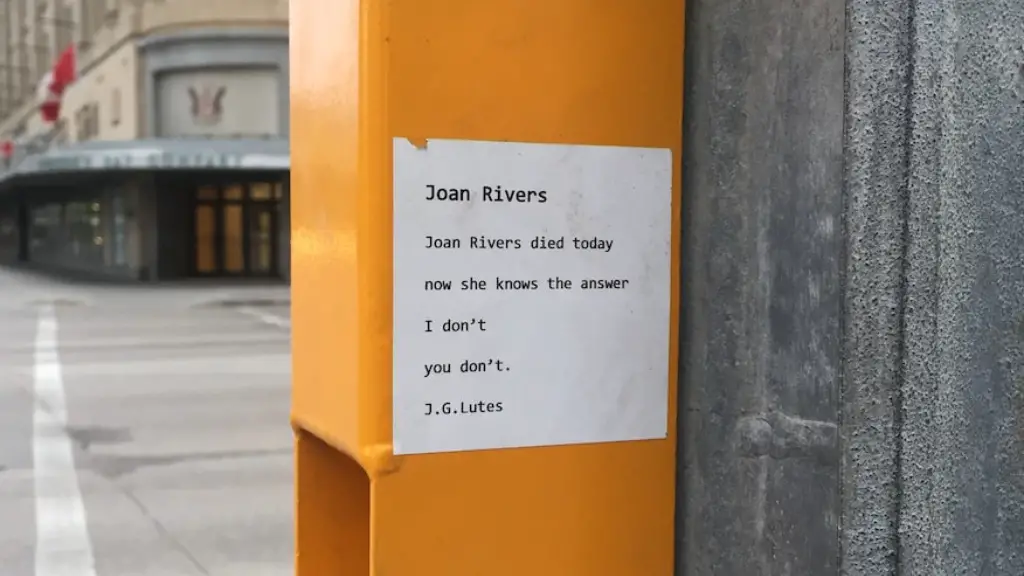Origins of Poetry
Poetry has been a part of human culture since the dawn of civilization. It is the oldest form of literature, dating back to ancient Sumerianepic poetry such as The Epic of Gilgamesh and Egyptian hieroglyphs. Ancient Chinese and Japanese poetry also had significant influence on later works. The development of modern poetic forms, such as the sonnet and ode, can be traced back to the Late Middle Ages, when poets began to experiment with meters and rhyme schemes. In the 18th century,the Romantic movement gave birth to the “poetics of feeling,” a style of writing characterized by emotion and imaginative flights of fancy.
Much like art, the origins of poetry cannot be definitively pinned down, due to the fluidity of its meaning and the many permutations it has taken over the centuries. What is known is that poetry has been a cornerstone of human expression for thousands of years and that it has evolved significantly since its inception.
Different Styles
Poetry has many styles, such as traditional forms like the sonnet, the haiku, and free-verse. Each of these forms has its own rules and conventions, and some poets stick closely to them while others choose to bend or break the rules. The aim of poetry is to express ideas and emotions in the most concise and vivid way possible, and different styles can be used to achieve this.
The language used in poetry is also hugely significant. While some poetic forms rely heavily upon traditional poetic devices such as metaphor and imagery, others are more focused on conveying meaning without the use of figurative language. Rhyme is also an important element of poetic composition, with many poems using a fixed formal rhyme scheme or a loose assonance.
Notable Poets
Throughout history, there have been many great poets whose works have stood the test of time. From the work of William Shakespeare and John Donne to the contemporary poetry of Sylvia Plath and Carol Ann Duffy, the world is filled with examples of how poets have used their art to express profound thoughts and challenge social and political conventions.
These poets demonstrate how poetry can be used as both an instrument of personal expression and a tool for social change. For example, Victorian poets such as Alfred Lord Tennyson and Robert Browning strove to challenge the oppressive conventions of their times by writing about themes of love, loss, and mortality. In contrast, contemporary poets such as Rupi Kaur and Warsan Shire have used their art to bring to light injustices against marginalized groups, such as people of colour and women.
Performance
For many contemporary poets, performing their work is just as important as writing it. Poetry slams, which began in the mid-1980s, have become a popular way to experience spoken-word poetry, with competitive poets vying to be voted the winner of the night. These events have also been instrumental in increasing the public’s appreciation of poetry and in reviving more traditional poetic forms such as the sonnet and haiku.
In addition, these events have helped to bring poetry to a wider audience. The surge in popularity of spoken-wordperformance in the last two decades has enabled many poets to reach audiences that may not have otherwise been exposed to the work. This has proved beneficial to both the poet and their audience, strengthening the poetic tradition and helping to educate audiences on the value of poetry.
Impact on Society
Poetry has played a significant role in the development of modern society. Through the use of poetry, authors have explored and exposed social injustices, spurred political revolution, and explored the depths of human emotion. From the tear-jerking sonnets of Elizabeth Barrett Browning, to the revolutionary poetic works of Audre Lorde and Maya Angelou, poetry has been an invaluable tool for exploring the realities of societies around the world.
Poetry can also be used to bring people together, highlighting not only the individual experiences of each person, but also the common threads that link us all. This is due to the emotive power of poetry, which enables readers to understand and relate to the experiences of those around them, thereby fostering understanding and empathy. For these reasons, poetry can be an invaluable tool in promoting harmony and justice in society.
How It Shapes Our Lives
Poetry has a profound effect on our lives and the way we interact with the world. In addition to its influence on literature, poetry can shape our lives in other, more subtle ways. Through its emotive language and vivid imagery, poetry teaches us to be more empathetic and to appreciate the nuances of language. It encourages us to think more deeply about life, relationships and the world around us.
Moreover, poetry has the power to inspire and challenge us, urging us to think outside of ourselves and to explore new ideas and perspectives. From gospel and blues songs, to the songs of protest, poetry has been a catalyst for social change, inspiring people to speak out against oppression and to fight for justice and equality.
Writing Poetry
Writing poetry can be an empowering and rewarding experience. There is no one set way to write a poem; instead, each poem should be unique and tailored to the poet’s individual style and vision. Whether it’s traditional sonnets and haikus, or free-verse and creative forms such as ekphrasis and collage, developing a style of writing is a personal journey.
When writing a poem, it is important to focus on conveying meaning, rather than on trying to follow a set of rules. Often, focusing on the music of language can be more helpful than worrying about metrics and rhyme schemes. Additionally, it is also important to remember that it is ok to make mistakes and to experiment with your writing. Poetry encourages creativity and playfulness, and as with any creative endeavour, there is no single formula for success.
The Role of Poetry Today
In today’s society, poetry continues to have an important role to play. Through its emotive power, poetry allows us to explore difficult conversations, and to expose unjust aspects of society. By providing a nuanced way to confront difficult topics, poetry encourages us to think more deeply and to respect the experience of others.
As well as being a tool for engaging in discourse, poetry can also be a comfort, providing solace and perspective during times of distress. Its language allows us to understand and appreciate deeper facets of our emotions, and to reflect on our experiences in new ways.
Engagement with Poetry
Engaging with poetry can take many forms. Attending poetry readings and slams is a great way to get to know the work of different poets, whilst writing poetry can help to affirm your own experiences and emotions. For those interested in exploring their poetic potential, there are many resources available, such as online courses and workshops, which can provide valuable guidance and support.
No matter how you choose to engage with poetry, it is important to remember that everyone’s experience of it is unique. Just as with any art form, the appreciation of poetry is subjective, and there is no single “right” way to engage with it. By exploring your own relationship to poetry, it is possible to discover the profound transformative power it can have on your life.


